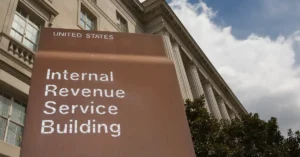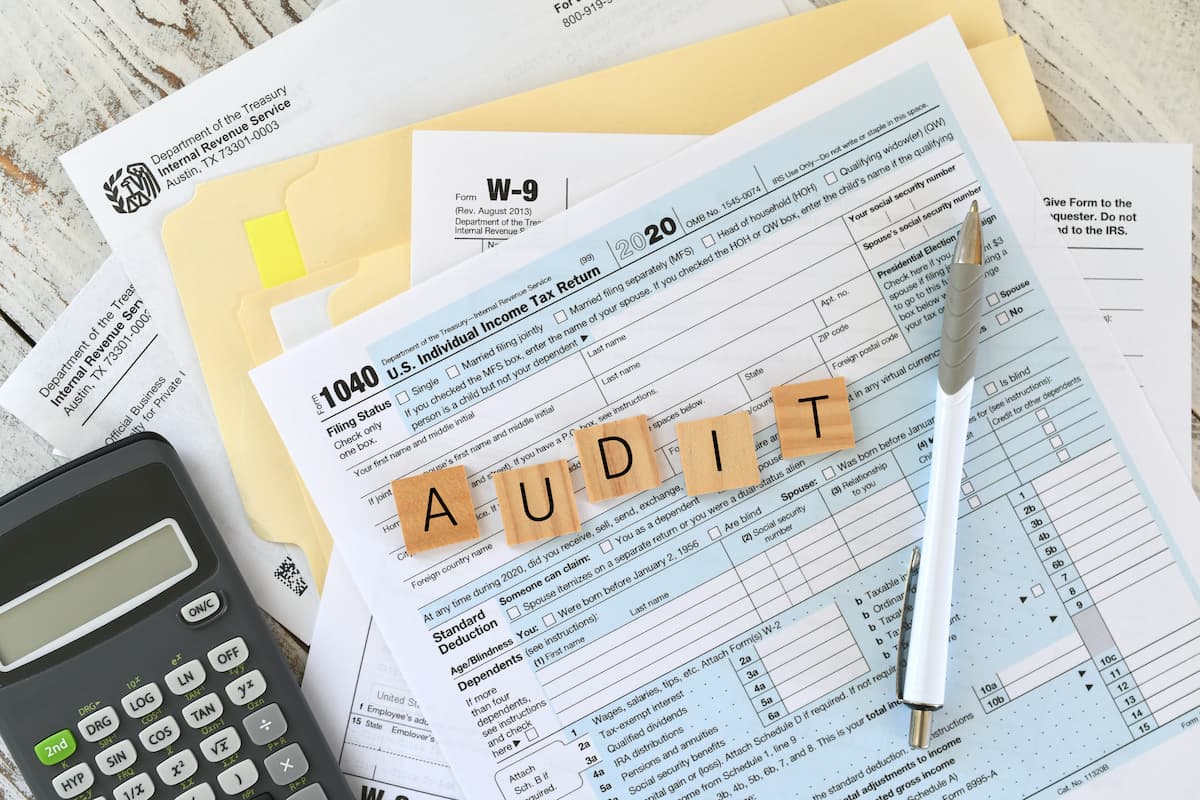How long do IRS audits take?
It’s a question that can keep many taxpayers up at night.
Dealing with an Internal Revenue Service (IRS) audit letter is stressful, and dealing with tax audit timeframes can be overwhelming. You have no idea how long your time and energy — and possibly finances — will be tied up in addressing any issues or what the outcome might be.
Everyone seems to agree that an IRS audit is a daunting experience, but few have an idea of what needs to be done — and you, unfortunately, do not have much time to prepare.
You need to be able to handle that audit process as soon as you get a notice in the mail, and this quick guide will make sure you’re ready to hit the ground running.
The 4 Basic IRS Audits & Timelines
Understanding the basics of an IRS audit is essential for anyone who files tax returns.
An IRS audit involves reviewing or examining an organization’s or individual’s accounts and financial information.
This process ensures that reported information aligns with the tax laws, verifying whether you’ve reported your income, expenses, and credits correctly on your return.
Here is a table outlining the typical timelines for different types of IRS audits:
| Type of Audit | Typical Timeline |
|---|---|
| Correspondence Audit (mail audits) | These are the simplest audit type and usually take 3-6 months. This type of audit is conducted entirely by mail. |
| Office Audit | An office audit is more complex and typically takes between 3-6 months but can extend up to a year, depending on the complexity of the review and the taxpayer’s responsiveness. This involves visiting an IRS office for a face-to-face meeting with an auditor. |
| Field Audit | As the most comprehensive type of audit, a field audit can take anywhere from 6 months to a year or even longer. This type of audit involves an IRS agent visiting the taxpayer’s home, business, or accountant’s office. |
| Taxpayer Compliance Measurement Program Audit | These are the most extensive type of audits where every line of the tax return must be substantiated by documentation. This type of audit can take a year or longer. |
Please note: These are estimated timelines, and the actual duration of an audit can vary depending on various factors, including the complexity of the issue, availability of records, response time, changes in tax laws, discrepancies found, and schedule conflicts.
Different Types Of Audits: Mail Audit vs. Office Audit vs. Field Audit
A mail audit (also known as a correspondence audit) is typically limited to one or two items on your return flagged by the automated system at the IRS office.
In contrast, office audits are more comprehensive examinations conducted in person at a local IRS office.
- You may be asked to bring specific documents like receipts for home-office deductions,
- Your client accounting records if you’re running a small business,
- Or other relevant documentation supporting entries made on your tax forms.
On another note, field audits, which can involve multiple tax years, are thorough onsite inspections – often at the taxpayer’s business. If selected for field auditing, it might be wise to seek help from a trusted IRS expert.
Familiarizing With Common IRS Audit Triggers
Some common triggers include excessive deductions compared to similar taxpayers; high-income earners ($200k+); reporting no income yet having a substantial lifestyle; large charitable donations etc.
Also, remember making errors while filing returns, such as incorrect social security numbers, mathematical mistakes could also lead auditors to knock at your door.
So what happens next? In the following section, let’s delve into the timeline associated with these types of reviews.
The Timeline for an IRS Audit
Understanding the timeline of an IRS audit can alleviate some stress associated with this process.
Typically, mail and office audits are completed within three to six months. This is due in part to their less complex nature compared to field audits.
Correspondence Audits (Mail Audits)
A mail audit involves reviewing tax forms and documents sent via post by taxpayers. The IRS auditor reviews these materials remotely at the IRS office.
This type of audit usually wraps up quickly if all necessary information is promptly and accurately provided.
Office Audits
An office audit takes place at a local IRS branch, where you meet with an examiner face-to-face. Working with a tax attorney to prepare thoroughly before your appointment will expedite this process.
Field Audits
In contrast, field audits involve more comprehensive investigations into taxpayer records, often involving multiple tax years or complicated business transactions.
The duration here depends largely on how organized client accounting records are and whether there might be suspected instances of tax fraud or evasion.
The Statute Of Limitations For An Audit.
Note that generally speaking, under U.S. law, the statute of limitations for conducting any form of tax-related investigation is limited to three years from either the return’s original filing date or its due date – whichever comes later (as per H&R Block’s Tax Audit & Notice Services).
This means it becomes increasingly difficult for auditors to legally assess additional taxes after such a time frame elapses unless they suspect serious issues like criminal fraud.
Remember: every case differs based on individual circumstances, so timelines aren’t set in stone. If you’re facing potential penalties, having trusted irs expert advice could make a significant difference throughout the entire auditing procedure.
| Audit Type | Description | Timeline |
| Mail Audit | IRS reviews tax documents mailed in | Typically 3-6 months |
| Office Audit | In-person audit at local IRS office | Typically 3-6 months |
| Field Audit | More extensive audit, often at taxpayer’s home/business | 6+ months depending on complexity |
The statute of limitations for audits is generally 3 years from filing or due date. Seeking expert advice can greatly help expedite and improve audit outcomes.
8 Factors That Can Extend Audit Duration
The duration of an IRS audit can vary based on several factors.
1. Complexity of the Issue: The more complex your financial situation is, the longer it may take for the IRS to complete the tax audit. This is especially true if you have multiple sources of income, large amounts of deductions, complex investments, or overseas accounts.
2. Availability of Records: The audit process will be extended if you can’t readily provide the necessary records and documentation to support your tax return information.
3. Response Time: The quicker you respond to the IRS’s requests for information, the sooner the audit will be completed. Delays in response time can significantly lengthen the process.
4. Changes in Tax Laws: Sometimes, changes in tax laws can cause delays in the audit process as IRS agents need to ensure they’re applying the most current rules and regulations.
5. Discrepancies Found: If the auditor finds discrepancies or issues that need further investigation, this can also extend the duration of the audit.
6. Schedule Conflicts: If there are scheduling conflicts between you and the IRS agent, this can delay meetings and extend the overall audit timeline.
7. Request for Reconsideration: If you disagree with the audit findings and request a reconsideration, this can also lengthen the audit process.
8. Owning a small business, for instance, often involves dealing with complex client accounting records, which may extend the timeline.
Small Business Complexity and Audits
If you’re a small business proprietor who’s been selected for an audit, it could take more time than normal because of the intricate financial state. Tracking small business income meticulously could help expedite this process.
If you’re selected for an audit, it does not always signify something is wrong. In some instances, the type of audit may be entirely random, while at other times, it is due to a related examination. A tax audit minimizes the “tax gap,” or the difference between what the IRS office receives and what the IRS is owed.
Some of the more common reasons a company gets audited include:
Excessive expenses and disproportionate deductions. It’s fine to claim deductions. However, if these deductions are disproportionate to your business income, it is a major tax audit trigger for IRS agents.
A significant number of independent contractors versus employees. Businesses do not have to pay state payroll taxes for independent contractors. As a result, if the state figures out that a business misclassified its workers, it will notify the IRS triggering a federal tax audit.
Mistakes. Unfortunately, the IRS office checks the math. Incorrect income tax numbers, missing 1099s, and even transposed numbers can mean big trouble — mainly because the IRS office tends to believe if you make a mistake on your taxes, you may be careless in your business financial dealings.
Auditor Disagreements: A Common Delay Factor?
In the course of an audit, variations on tax returns noted by the auditor may necessitate additional research and adjustments to complete the review. This process is beneficial to ascertain the taxpayer’s obligations accurately; however, such feedback can be met with disagreement from taxpayers.
Unfortunately, when opinions differ over necessary balance changes on audits, this often delays reaching a mutually agreed-upon resolution. Such delays can impose undue hardship on all involved in undertaking individual or business filings.
It is important that both sides collaborate equitably to bring about timely resolutions during the conduct of tax audits.
Pursuit Of Penalties And Criminal Fraud By The IRS
Investigations tend to be more extensive when the IRS pursues penalties or criminal fraud.
This is because such cases involve multiple tax years and require thorough scrutiny by experienced IRS officers.
In fact, any indication of tax evasion typically leads to field audits – known as one of the most comprehensive types of examinations conducted by the agency.
Though rare (affecting only about 2000 cases each year), if signs point to deliberate attempts at evading taxes or committing fraud, expect your case to attract higher attention from investigators.
Such scenarios naturally lead to extended durations before reaching resolutions.
As we navigate various audit aspects,” How does one prepare effectively?” becomes an essential question worth exploring next.
How To Prepare For An IRS Audit
Getting ready for an Internal Revenue Service examination may appear alarming, but it can be dealt with, with the correct methodology and help from a reliable IRS specialist.
Maintaining Organized Tax Forms And Records
The first step in preparing for any tax audit is ensuring that your tax forms are well-organized.
This includes the current year’s returns and those filed over the past few years, as audits often involve multiple tax years.
Maintaining records like bills, credit card receipts, and invoices is suggested to substantiate items reported on your return.
Tips From Trusted IRS Experts On Record Keeping:
- Digitalize Your Documents: To avoid misplacing important documents or having them damaged by unforeseen circumstances such as fire or theft – consider digitalizing all relevant paperwork related to income and expenses.
- Categorize Expenses: Create categories based on common expense types found in Schedule C Form 1040. This will make tracking easier during an office audit, where you may need to present these details quickly.
- Prompt Filing Of Returns: Filing returns promptly reduces chances of forgetting essential information, which could trigger an IRS auditor’s attention later down the line when they review late-filed returns.
Avoiding Common Mistakes That Can Trigger IRS Audits
Beyond organized records, avoiding certain actions known as common IRS audit triggers can help prepare you better against potential scrutiny by auditors at their local IRS office or field audits conducted outside their premises.
- Inflating deductions beyond reasonable amounts (e.g., excessive home office deduction).
- Omitting income – especially if it has been reported elsewhere (e.g., W-2 form).
- Failing to report foreign bank accounts – attracts severe penalties under FBAR regulations imposed by Treasury Department.
By following these tips provided here, along with advice from experienced professionals familiar with how to track small business income effectively, taxpayers can confidently navigate through what might otherwise be stressful encounters involving complex client accounting records should they ever face one.
| Tip | Description |
| Organize records | Gather tax forms, returns, receipts, bills, invoices |
| Digitize documents | Scan or take photos to create electronic copies |
| Categorize expenses | Group items based on Schedule C Form 1040 |
| File returns promptly | Don’t trigger auditor attention by late filing |
| Avoid common triggers | Inflated deductions, unreported income |
| Report foreign accounts | FBAR penalties for unreported accounts are severe |
| Seek expert advice | Experienced professionals can guide you through an audit |
6 Options If You Disagree With An IRS Audit Outcome
After the audit, you will be mailed or handed an IRS Form 4549 or an IRS examination report. This report will indicate the proposed changes to tax liability.
It will also provide you with a clear explanation of any adjustments made and either state no changes are needed or indicate that you owe taxes plus penalties and interest. If you disagree with the IRS audit findings, there are options available to assist. There are steps in place to help taxpayers navigate this situation.
Here are some of the most common options a taxpayer has if they disagree with the outcome of an IRS audit:
1. Request a conference or meeting with the auditor’s manager
This is often the first step in disputing an audit outcome. It gives you a chance to discuss your case with another IRS representative who may see things differently.
2. File an appeal
After discussing the result with the auditor’s manager, you can file an appeal with the IRS Office of Appeals if you’re unsatisfied. You’ll need to send a formal written protest explaining why you disagree with the audit findings.
This process allows for further review and potentially different outcomes from those initially proposed by your IRS auditor.
3. Mediation
The IRS offers a fast-track mediation service, which is a way to resolve disputes during the audit process. In this process, a neutral third party (the mediator) helps you and the IRS reach a mutually satisfactory resolution.
4. Go to court
You can take the IRS to court if you’ve exhausted all other avenues. You can go to the United States Tax Court, Federal District Court, or the United States Court of Federal Claims.
5. Offer in Compromise
If you owe taxes that you can’t pay, you can submit an Offer in Compromise. The IRS offers programs such as the Offer In Compromise (OIC), where they may agree to settle for less than owed if full payment would cause financial hardship or there’s doubt regarding liability or collectability.
Sometimes it might not be about completely overturning an adjustment but negotiating a compromise instead.
Remember, though, these compromises aren’t easily granted and require significant proof – another reason why having trusted irs expert advice can make all difference.
6. Installment Agreement
If you can’t pay your tax debt all at once, you might be able to set up an installment agreement with the IRS to make monthly payments until the debt is paid off.
Remember, if you’re facing an audit or dealing with the aftermath of one, consult with a tax attorney immediately, as they are experienced in providing legal advice tailored to your specific tax situation.
The Importance of Documentation
In order to successfully dispute audit adjustments, thorough documentation is key. This includes maintaining copies of all tax forms filed during the years under scrutiny as well as any supporting evidence that justifies your reported income or deductions.
Your tax attorney can guide you on what documents will most effectively prove your case before the Appeals Office.
Disagreements with audits needn’t mean dead-ends; avenues like appealing decisions, presenting robust documentation, and even negotiation routes exist, which could lead to resolution.
Now let’s move on to more serious scenarios – when penalties get involved due to fraud allegations.
Navigating Penalties And Fraud Charges
When the IRS pursues penalties or charges related to fraud, it can be a daunting experience. The fraud penalty guidelines provided by the IRS offer some insight into this process.
The Consequences of Tax Evasion
Tax evasion is considered one of the most serious forms of tax fraud and is punishable under the law.
If found guilty, individuals may face hefty fines and even imprisonment, depending on severity.
This underscores how important it is for taxpayers to comply with all relevant regulations when filing their returns each year.
Potential Penalties Imposed By The IRS
In cases where discrepancies are identified in your tax return, you might be subjected to various types of penalties imposed by the IRS based on their assessment.
These could range from monetary fines that vary according to specific percentages stipulated by them up to criminal prosecution in severe instances involving multiple tax years.
Bear in mind that these consequences affect your financial standing and potentially tarnish your reputation significantly if charged publicly.
The Role Of An Experienced Tax Pro In Navigating These Waters
Facing such dire circumstances warrants seeking professional help from an experienced tax attorney who has previously dealt with similar audit situations.
Their expertise can guide you through complex legal processes ensuring adherence while minimizing potential damage caused due to any oversights during self-representation.
Moreover, they provide valuable advice tailored specifically towards navigating successfully through intricate intricacies associated with audit outcomes, thereby increasing chances of securing favorable results overall.
Impact Of An IRS Audit On Your Tax Refund
An IRS audit can be a stressful experience, especially when you’re anticipating a tax refund.
The question that often arises is whether an audit will affect your tax refund.
Audit Outcome and Its Effect on Tax Refunds
In most cases, the outcome of an IRS audit does not impact your ability to receive a tax refund unless adjustments are made by the auditor, which increases what you owe.
If this happens during the current year’s review process, it could reduce or eliminate any expected return for that period.
Cases When IRS Audits Delay Or Reduce The Refund Amount
However, there are circumstances where audits may delay or even reduce your anticipated refunds.
For instance:
- If discrepancies found in previous years’ returns result in owed back taxes,
- Your entire refund might be used to offset these liabilities before anything else gets paid out,
In other words: if, after going through all those numbers again – they discover mistakes from past filings leading up towards additional amounts due, then chances exist whereby one’s whole reimbursement would first go towards settling such outstanding debts prior to making its way into their bank account.
Navigating Through This Complex Process With A Trusted IRS Expert
Trusted IRS experts, like our team at Silver Tax Group, can help navigate this complex process, ensuring taxpayers understand how potential changes from an audit might influence their future refunds.
We also provide guidance regarding ways individuals can protect themselves against unnecessary losses while still complying fully with all relevant laws & regulations. Thus, allowing them peace of mind knowing everything has been taken care of correctly without needing to worry about possible financial repercussions down the line as consequence non-compliance issues discovered during examination phase itself.
Key Takeaways:
An IRS audit can be a nerve-wracking experience, especially if you’re expecting a tax refund. But in most cases, the outcome of an audit won’t affect your ability to receive that refund unless adjustments are made by the auditor, which increases what you owe. However, there are situations where audits may delay or even reduce your anticipated refunds. For example, if discrepancies are found in previous years’ returns and result in owed back taxes, your entire refund might be used to offset those liabilities before anything else gets paid out.
That’s why having a trusted IRS expert on your side is important during this complex process. They can help you navigate through the audit and ensure you understand how any potential changes resulting from the audit might impact your future refunds. They can also provide guidance on protecting yourself against unnecessary losses while still complying with all relevant laws and regulations.
Avoid IRS Audit Timeframe Issues Altogether
IRS audits can be daunting, but understanding the process removes some of that fear. The timeline varies – from quick mail audits to more lengthy field investigations. Factors like business complexity and disagreements with audit findings can extend this duration.
You’ve learned how preparation is key, especially for small businesses tracking income and expenses. If you disagree with an outcome, there are steps you can take through the IRS appeals service.
In cases where penalties or fraud charges arise, having an experienced tax pro on your side becomes invaluable. An audit may impact your refund, too – another reason why understanding the process matters so much!
If facing such a situation seems overwhelming or you need expert help navigating complex tax issues, consider contacting Silver Tax Group. Our team of seasoned tax attorneys is ready to assist in making the audit process smoother and less stressful for you.








